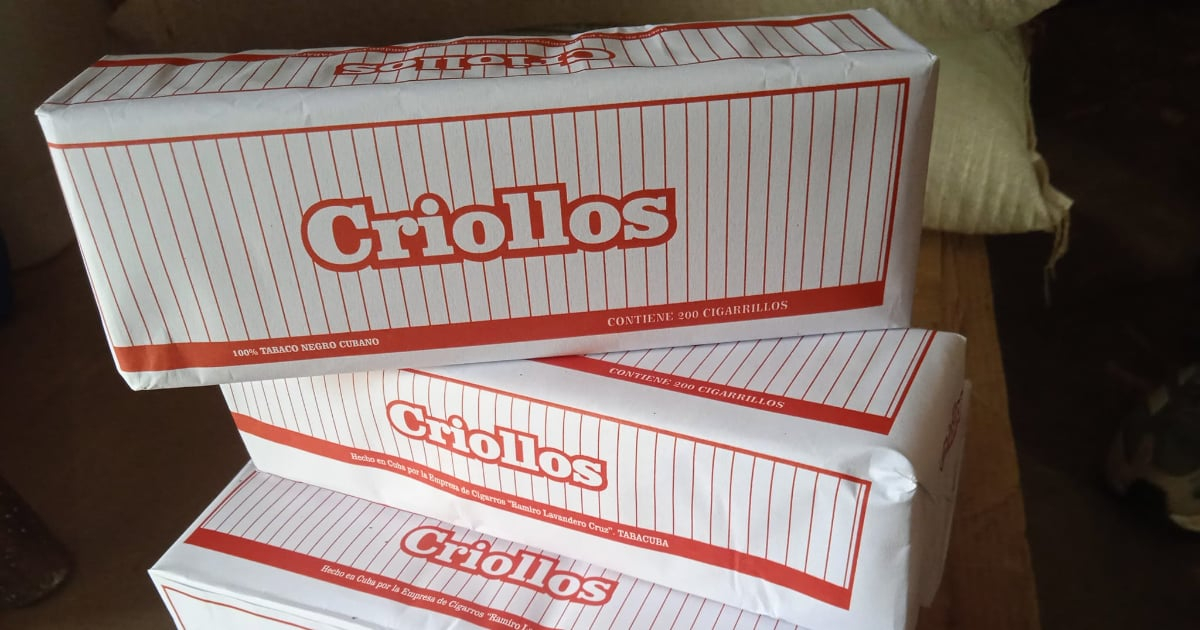
Related videos:
The price surge in Cuba seems unstoppable: in some provinces, a box of cigars reaches 500 pesos, highlighting the economic crisis and the ineffectiveness of government measures against inflation.
The Facebook profile named "Ma Chete" sparked debate after expressing astonishment at the high price of a pack of cigarettes, becoming a space for other users to share their opinions on the matter.
"Cuba was 'coffee, tobacco, and rum.' Then they get upset when we say they are a failed state," the profile noted in the comments section.
Nora Alibech García Villalón stated that, in Boyeros, Havana, the box costs 500 pesos, which aligned with Mónica Pérez's opinion: "500 pesos here in 'Nuevo Vedado City,' and there aren't any."
A person named Nallivis Gesteira Oms noted that "in Havana, a box costs 500 pesos and individual items are 50."
"Tell me about it; I smoke like a chimney, and here in Matanzas, prices are between 350 and 380 dollars, which is incredible because, as you rightly said, tobacco, rum, and coffee are part of our identity," noted Magda González Hernández.
Loraine Borroto noted that in Santa Clara, “a cigarette, depending on the brand, costs between 30 and 50 pesos.”
Alain de Jesús García Viamontes noted that every time "they place a party leader in a productive sector, they are not satisfied until they have destroyed it. This is a clear example. Murillo ruined the economy and was then put in charge of Tabacuba; now a box of cigarettes costs between 400 and 500 pesos. We're going for more. The most ironic part is that it's all due to the blockade."
"The cigar is worth more than a pound of chicken," stated María Morales Reynoso, referring to another scarce commodity in Cuban households.
Jacqueline Pérez Dueñas said: "I can imagine it. If the box I smoke costs between 450 and 500, and Canel still says it's going to be available on the 20th, well, he can go take a hike."
Despite this, during a recent work visit to the province of Holguín, Cuban leader Miguel Díaz-Canel held private small businesses responsible for the rising prices, describing some of them as "abusive" and "torturous."
These statements come in the context of an economic crisis exacerbated by inflation and a shortage of basic goods, where citizens face an increasingly precarious situation on a daily basis.
Pork, one of the most inaccessible staple products today, continues to take a toll on the wallets of Cubans, proving especially burdensome for retirees and the most vulnerable groups.
Dulce Véliz Dagnery, a retiree from Santiago de Cuba, expressed her frustration on this issue to Granma, noting that "cracklings are part of the past."
Frequently Asked Questions about the Economic Crisis and Inflation in Cuba
Why are the prices of basic products like cigarettes and food so high in Cuba?
The skyrocketing inflation in Cuba has driven up the prices of essential goods such as cigarettes and food. This phenomenon is due to the ineffectiveness of government measures to control inflation, combined with a shortage of products and raw materials, which raises costs in the informal market.
What has the Cuban government said about the price crisis and inflation?
The Cuban government has blamed small private businesses for the rise in prices, describing some of them as "abusive" and "excessive." However, the measures announced to control prices have been ineffective and have not succeeded in reducing the impact of inflation on the population.
How does inflation affect Cuban citizens?
Inflation severely affects the purchasing power of Cuban citizens, making basic products unaffordable for many families. High prices particularly impact the elderly and vulnerable groups, who struggle to meet their daily food needs.
Which basic products have seen their prices most affected by inflation in Cuba?
Products like pork, eggs, sugar, and oil have seen significant price increases. These rises reflect the food crisis on the island, where it is becoming increasingly difficult for citizens to access essential foods.
Filed under: